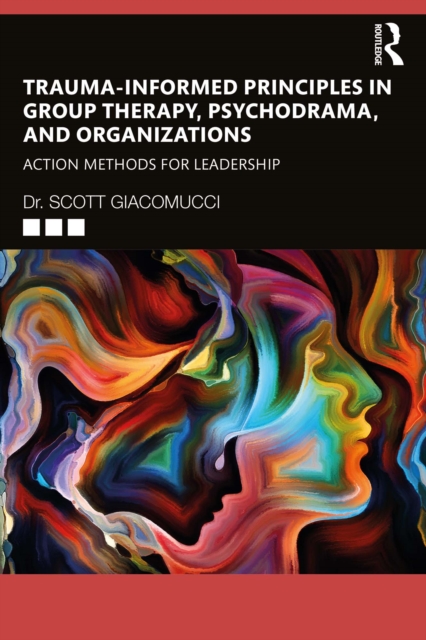
Trauma-Informed Principles in Group Therapy, Psychodrama, and Organizations : Action Methods for Leadership PDF
by Scott Giacomucci
Description
This book presents trauma-informed principles for ethical, safe, and effective group work, psychodrama, and leadership.
Content will include practical guidelines, detailed instructions, and diverse examples for facilitating both trauma-informed and trauma-focused groups in treatment, community, and organizational leadership. Chapters focus on various topics including safety, empowerment, social justice, vicarious trauma, and leadership. Organizational leadership is approached through the lens of SAMHSA’s guidance and the framework of group work leadership. The book includes significant focus on sociometry and psychodrama as strengths-based and experiential group approaches. Psychodrama’s philosophies, theories, and interventions will be articulated through a trauma-informed lens offering psychodramatists, group workers, and organizational leaders new conceptual frameworks and action-based processes. Chapters contain a blend of theory, research, practical guidance, and examples from the author’s experience.
This book will appeal to group workers, therapists, psychodramatists, creative arts therapists, organizational leaders, trainers, facilitators, supervisors, community organizers, and graduate students. This book offers group facilitators the insight and tools to lead engaging and meaningful groups. The potential for retraumatizing participants is addressed while promoting trauma-informed practice as an ethical imperative.
Information
-
Download - Immediately Available
- Format:PDF
- Pages:306 pages
- Publisher:Taylor and Francis
- Publication Date:25/04/2023
- Category:
- ISBN:9781000859973
Other Formats
- EPUB from £24.29
- Paperback / softback from £29.95
- Hardback from £120.00
Information
-
Download - Immediately Available
- Format:PDF
- Pages:306 pages
- Publisher:Taylor and Francis
- Publication Date:25/04/2023
- Category:
- ISBN:9781000859973






